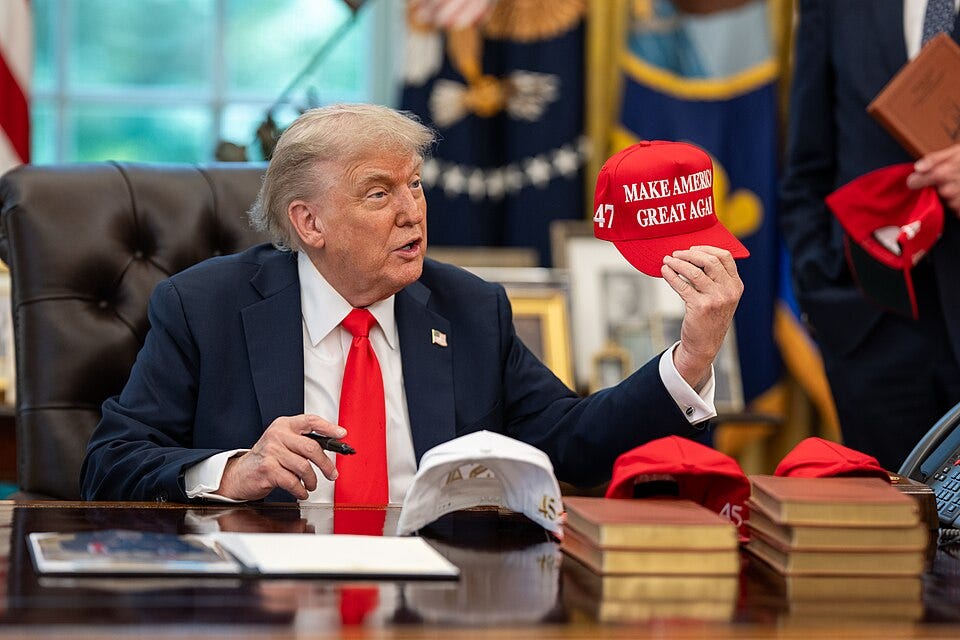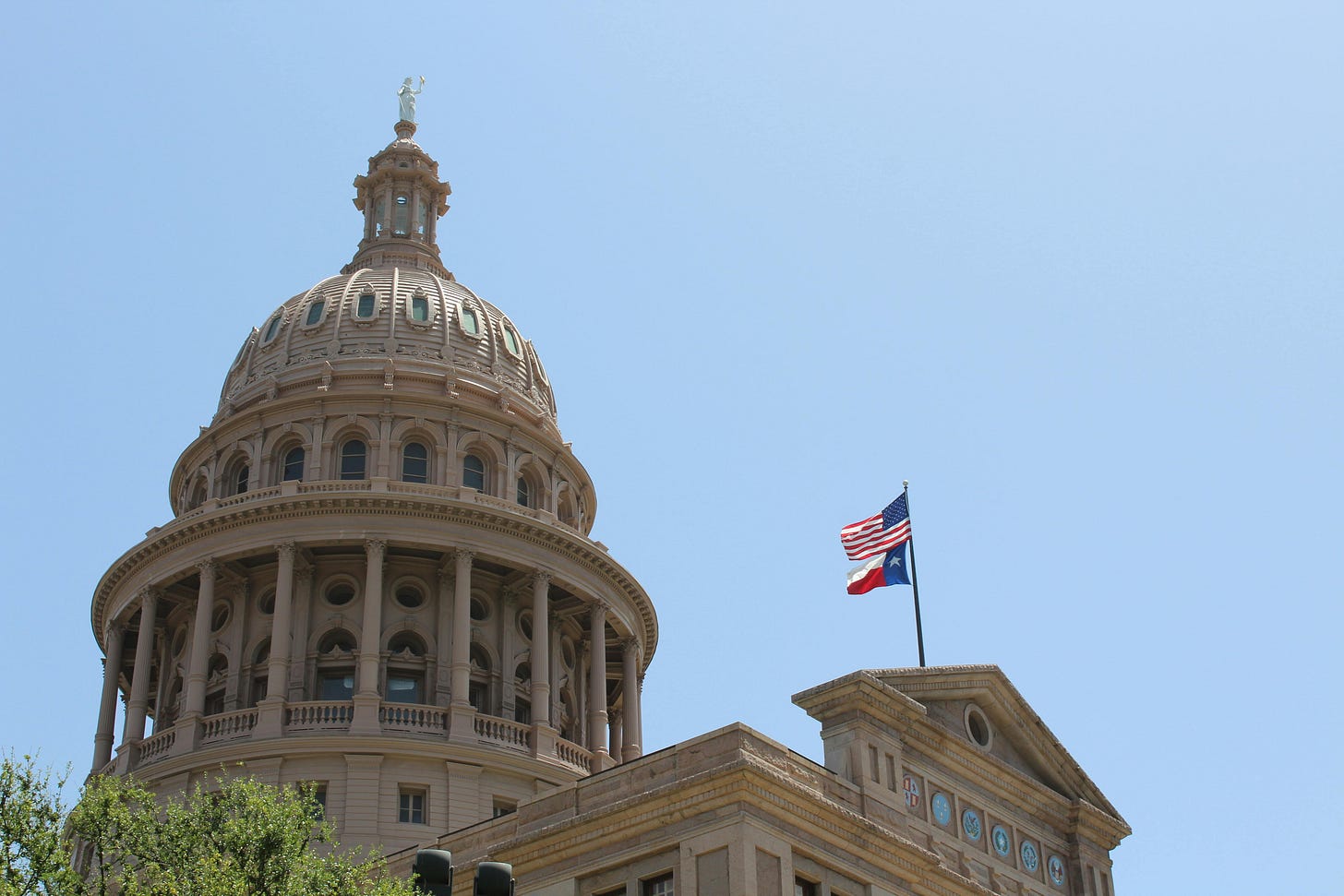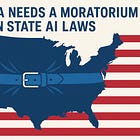Summer Slowdown?: Policy Fights Heat Up in D.C. & Texas | This Week's Economy Ep. 118
From talk of war and a ballooning deficit to Governor Abbott’s vetoes—here’s what’s happening.
Hello Friends!
Summer is typically a slow season for policy in D.C. and the states. Legislative sessions wrap up, and Congress heads into recess. But if you thought that meant a quiet summer—think again.
With the bombings in the Middle East, the “One Big Beautiful Bill” moving slowly through Congress, and Texas Gov. Greg Abbott calling a special session, this summer is shaping up to be anything but calm.
On This Week’s Economy, I expose what lawmakers should be focused on. Spoiler: it’s mostly about spending restraint and getting government out of the way!
Watch the full episode on YouTube, Apple Podcast, or Spotify, and visit my website for more information.
1. One Big Beautiful Bill Barges Ahead

In the News:
As of recording, the One Big Beautiful Bill (OBBB) is still awaiting a Senate vote, with action expected soon ahead of the July 4th deadline. The bill includes several promising provisions—like a moratorium on state-level AI regulation, the rollback of “green energy scam” subsidies, and possible Medicaid reforms. Sources: Axios, Reason Magazine, The Hill, and National Review
My Take:
Rolling Back Green Energy Scam Subsidies: Despite a few lingering anti-growth carveouts, one of the OBBB’s strongest reforms is its move to unwind former President Biden’s green energy subsidies. This marks a long-overdue shift away from Washington picking winners and losers in the energy sector. Propped up by mandates and handouts for years, many renewable, unreliable energy firms are now facing the same market reality as everyone else—where competition is based on performance, not favoritism. That’s a healthy correction.
Expand HSAs, Empower Patients: Another key piece of the bill is the proposed expansion of Health Savings Accounts (HSAs) to 20 million more Americans—the most significant HSA reform since their creation in 2003. This would meaningfully increase healthcare access and give more people control over their care, not less. It’s a commonsense step toward a freer, more flexible healthcare system.
Reject Industrial Policy, Embrace Market Discipline: These OBBB provisions are a step away from industrial policy which assumes Washington knows better than markets. It doesn’t. Provisions like repealing green energy subsidies are a clear rejection of the failed idea that government can engineer outcomes better than competition. If we want more innovation and investment, we need less interference—not more handouts or protectionist schemes. A level playing field, not a rigged one, is how we let people prosper.
Related: I broke down the OBBB’s proposal to unwind Biden-era green energy at subsidies at The Washington Examiner.
2. Wars Domestic and International

In the News:
The U.S. has entered the Israel-Iran conflict, launching strikes on three key nuclear facilities. Vice President J.D. Vance tweeted that this decision ultimately rests with President Trump and aligns with his platform. Meanwhile, as the U.S. edges closer to war, the national debt has surpassed $37 trillion. Source: CNN, and US Debt Clock
My Take:
War During a Debt Crisis: How does deeper involvement in Israel’s fight with Iran—a country with 90 million people located 7,350 miles away—serve the Americans? We've already sent many billions in taxpayer-funded, debt-financed aid. Now, as the federal debt climbs past $37 trillion, we should be asking hard questions. Beyond the serious constitutional concerns of whether a president can or should attack a country without being attacked first and/or Congress authorizing it, there’s a basic issue of fiscal sanity. We can't keep repeating the same mistakes and expecting a different result.
The Broken Window Fallacy, Applied: Frédéric Bastiat’s parable of the broken window reminds us that destruction does not create prosperity. Just as a shopkeeper is worse off after paying to fix a broken window, a country is poorer—not richer—after waging war. The idea that war stimulates the economy because it “creates demand” for the military-industrial complex ignores the real cost: lost resources, lost lives, and long-term debt.
War Destroys—It Doesn't Build: War does not create economic growth. It destroys—people, infrastructure, stability, and futures. Even in rare cases where war may be justified, we must reject the myth that it’s good for the economy. That thinking has led us down too many costly paths.
Related: Check out my Let People Prosper episode with Dr. Abby Hall on her book How to Run Wars: A Confidential Playbook for the National Security Elite.
3. Texas Awaits a Special Session

In the News:
Gov. Greg Abbott has vetoed several bills passed during the last legislative session, including SB 3, which would have banned the sale of hemp products containing THC. He’s also calling lawmakers back for a 30-day special session on July 21 to revisit some of these measures. Sources: Texas Tribune and Associated Press
My Take:
Texas Misses the Mark: The special session will likely overlook the very issues that should’ve been addressed in the first place: cutting government spending, setting property taxes on a path to elimination, imposing strict state and local spending limits, and delivering universal school choice. Instead, the legislature may double down on the wrong priorities. This is exactly why we can’t get too excited with news like this as government can always come back around to make things worse.
A Few Wins for Liberty: There were some welcome vetoes. Abbott rightly vetoed SB 3 (the hemp product ban) and SB 974 (a clear conflict of interest which would have allowed teachers to serve on appraisal boards). These bills were classic examples of government overreach, pushed by rent-seekers, not rooted in any real policy need. Limiting government intrusion helps families, law enforcement, and local economies alike. It’s time to move on from the old-school Republican instinct to ban and punish anything they don’t like or fear or don’t understand.
Bad Bills Still Passed: Despite a few vetoes, plenty of bad legislation made it through. From a bloated, California-style budget, to corporate welfare for Hollywood, to $20 billion in taxpayer handouts for water infrastructure tied up in state control—many of these bills betrayed Texas’s reputation for fiscal responsibility and economic freedom.
Related: I recently explained why Texas taxpayers should be alarmed at final 2026–27 budget passed by the legislature at Texans for Fiscal Responsibility.
4. Economic Health Check

In the News:
The third estimate of Q1 2025 GDP showed that real GDP fell by 0.5%, while real Gross Domestic Income (GDI) edged up just 0.2%—a clear sign of a sluggish economy. Meanwhile, the U.S. dollar continues to weaken, with the dollar index down nearly 10% this year and hovering near its lowest level since 2022. Consumer confidence also declined sharply in June, dropping 5.4 points from May, with the steepest decline among Republican respondents.
Also, the Federal Reserve’s Vice Chair for Supervision unexpectedly signaled that rate cuts may be coming soon due to mounting risks to the labor market, despite her earlier resistance to easing policy. Source: Yahoo! Finance, CNN, Bureau of Economic Analysis, and CNN
My Take:
Cut the Balance Sheet, Not Rates: Instead of rushing to cut interest rates, the Fed should prioritize shrinking its bloated balance sheet. The massive expansion of the money supply during the pandemic flooded the economy with excess liquidity—fueling the inflation we’re still battling. Reducing the balance sheet would more directly address this problem than rate cuts, which risk further distorting the economy and reigniting inflation.
Tariffs Are Hurting, Not Helping: Tariffs are not the solution they were sold to be. They add uncertainty, disrupt business planning, and raise costs for consumers as companies pass down higher import prices. In effect, tariffs are hidden taxes that make everything more expensive. If we want a stronger dollar and more economic stability, we need more trade—not protectionism.
What Really Fuels Economic Growth: You don’t grow the economy by growing government—you grow it by getting government out of the way. The weak GDP numbers make this plain: we’re stagnating, not soaring. Instead of chasing short-term fixes like rate cuts or tariffs, lawmakers should focus on the real drivers of growth: spending restraint, tax cuts, and regulatory reform. The federal deficit is a major source of today’s economic instability. If we want long-term prosperity, we must rein in government and let businesses lead the way. That’s how you grow an economy—by unleashing the private sector, not expanding Washington’s reach.
Related: Read my deep dive on better monetary policy—written during last fall’s rate cuts—in The Daily Economy.
5. AI Fear-Mongering

In the News:
MIT researchers recently compared brain activity in people writing essays using three different methods: OpenAI’s ChatGPT, Google Search, or no tools at all. Participants were monitored via EEG to track brain engagement. The study found that over a few months, those who used ChatGPT had lower brain activity and underperformed the other groups. Source: The Hill
My Take:
Bad Policy Starts with Bad Research: This non–peer-reviewed study doesn’t measure real-world learning outcomes—it only tracks brain activity. Even the author admits the paper was rushed out in a bid to stop what he calls “GPT kindergarten.” That’s not science; it’s activism.
False Alarm: No one is arguing that AI should replace learning. Tools like ChatGPT can support and enhance the learning process when used responsibly—just like calculators or spellcheck did in their day.
Fear Shouldn’t Block Progress: As the U.S. navigates the AI revolution, we need fewer headlines stoking fear and fewer politicians jumping to ban innovation they don’t understand. Let’s focus on educating the public, building guardrails where needed, and then getting out of the way.
Related: This study drops amid a wave of state-level legislation on AI. But now is not the time for a patchwork of reactionary mandates. What we need is a principled pause—guided by facts, not fear.
Thanks for joining me in this episode of "This Week's Economy." For more insights, visit vanceginn.com and get even greater value with a paid subscription to my Substack newsletter at vanceginn.substack.com.
God bless you, and let people prosper!
Keep reading with a 7-day free trial
Subscribe to Let People Prosper to keep reading this post and get 7 days of free access to the full post archives.







